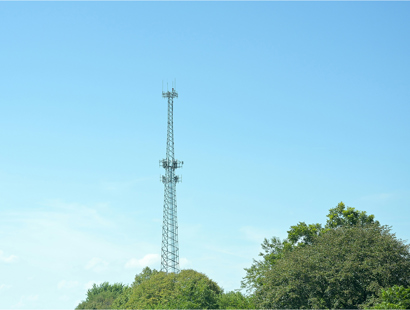
Hidden opportunities: the AP Wireless II v On Tower UK Ltd decision and its implications for landowners with telecoms equipment
Associate Thomas Wild examines the Upper Tribunal’s decision in AP Wireless II v On Tower UK Ltd and its implications for landowners.
The Upper Tribunal's decision in AP Wireless II (UK) Ltd v. On Tower UK Ltd UKUT 429 has significant implications for landowners. This ruling provides clarification on the legal status of operators under the Electronic Communications Code (the Code) and demonstrates the importance of clear contractual agreements, offering site providers increased opportunities and protections but also challenges.
Case overview
The legal question for the Upper Tribunal was whether On Tower, (having acquired the benefit of a licence agreement through an assignment which was entered into before 28 December 2017), qualified as a ‘party to a code agreement’ under the Code. This status is crucial because it determines an operator's ability to seek modifications, terminations, or renewals of agreements concerning electronic communications apparatus on a landowner's property under Part 5 of the Code. It also determines the correct recipient of a landowner’s termination notice.
On Tower sought to renew the licence with AP Wireless II (UK) Ltd (APW), who contended that On Tower lacked any ability to do so, arguing that only an operator who is a contracting party to the licence/code agreement can initiate a renewal under the Code.
The Tribunal concluded that assigning the benefits of a licence does not automatically mean that party would become a ‘party to the Code agreement’ under Part 5. For an assignee like On Tower to be considered a party to the Code agreement, it must assume both the benefits and the burdens of the original agreement. In this case, the Upper Tribunal found in favour of On Tower on the facts of the case. It is important to note however that performance of obligations under a licence would not be enough – a form of contract to accept the burden and benefits of such a licence is required.
It is important to note that the decision won’t apply to code agreements entered into after 28 December 2017 because the Code automatically transfers the burden of new code agreements on an assignment. It also won’t apply to older agreements that are properly to be construed as leases, rather than licences, because - again - the benefit and burden is automatically transferred on an assignment.
Implications for landowners
This decision offers several advantages to site providers:
- Negotiating power: the ruling demonstrates that operators must fully take over existing obligations to gain new rights under the Code. This requirement will allow site providers to negotiate with operators who are seeking to renew a subsisting agreement which has not been contractually assigned.
- Clarified contractual relationships: the decision highlights a requirement for documented agreements/assignments rather than an assignment and subsequent performance of a licence taking place without any record of such assignment. Site providers are now better positioned to ensure that any assignment of rights includes the transfer of all obligations, preventing operators from selectively assuming benefits without corresponding burdens.
Landowners will now also need to scrutinise telecoms arrangements carefully to ensure that notices are served by, and served upon, the correct party.
Strategic considerations for site providers
In light of this ruling, site providers should consider the following actions:
- Review existing agreements: assess and review all of your current code agreements with operators to ensure that any assignments include the transfer of both benefits and obligations. This should be carefully checked if you receive a notice under Part 5 seeking to renew an existing agreement, or indeed if you intend to serve notice to renew or terminate an agreement.
- Seek legal advice: engage with legal professionals to navigate the complexities of the Code and to structure agreements that safeguard your interests effectively.
Conclusion
The AP Wireless II v. On Tower UK Ltd decision is the latest in a long line of scuffles between APW and On Tower and, with each one, various aspects of the Code have become slightly clearer. It is now clear that an operator must contractually assume the burdens of code agreements as well as the benefits in order to enjoy the protections of the Code.
Landowners may be able to leverage this decision to their advantage, and negotiate better terms for themselves in certain circumstances. But it presents challenges too. In some cases, the terms of any assignment may not be known to the landowner and if it intends to serve notice to terminate a code agreement in order to remove a mast or other telecoms apparatus from their land, they may need to serve protective notices on different parties to ensure their position is protected. As ever, seek specialist legal advice.
Thomas Wild is an associate in the property litigation team, advising on the full breadth of contentious property matters ranging from commercial lease extensions, break notices, forfeiture, dilapidations, commercial rent arrears and telecoms disputes.
Get in touch
If you would like to speak with a member of the team you can contact our property litigation solicitors by email, by telephone on +44 (0)20 3826 7525 or complete our enquiry form.





